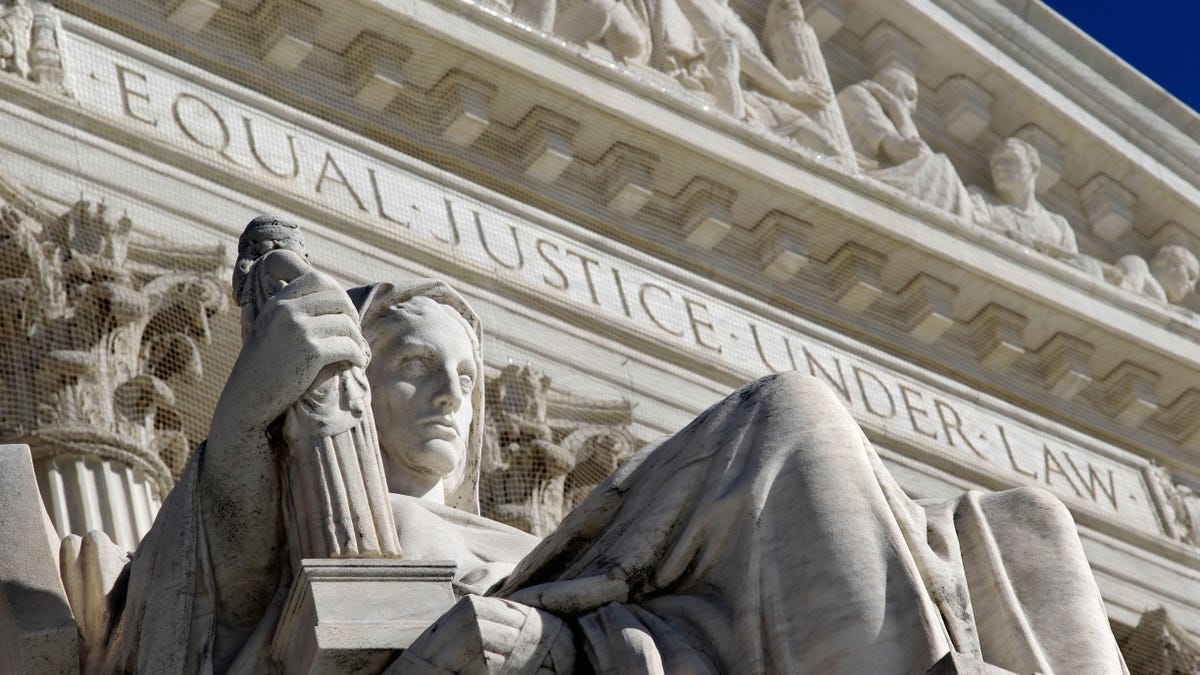
A detail of the West Facade of the U.S. Supreme Court is seen in Washington, Monday, March 7, 2011. (AP) (AP2011)
Seven years after the release of shocking images of tortured prisoners in Abu Ghraib prison in Iraq, the Supreme Court has turned back the appeal of 26 inmates from that infamous facility who wanted to sue two military contractors for damages.
The military's official investigation revealed "numerous incidents of sadistic, blatant, and wanton criminal abuses" committed by military personnel and civilian contractors who provided support services at the prison.
More than two dozen soldiers were reprimanded or court-martialed for their conduct. But those who were tortured want to sue two firms that hired the civilians who helped the military with translations and interrogations.
The investigative report authored by now retired Major Gen. Antonio Taguba concluded that the civilians hired by CACI International and Titan Corporation "(did) not appear to be properly supervised within the detention facility." He also identified specific civilian employees who were involved in the torture but lacked the authority to court martial those workers who also escaped criminal prosecution in civilian courts.
The prisoners filed a lawsuit in federal court against the two companies claiming war crimes violations. But the lawsuit was quickly tossed by the judge who determined that federal law does not allow for claims of war crimes against private parties. A divided appellate court upheld the decision to block the lawsuit.
Judge Merrick Garland, who last year was strongly considered for a spot on the high court by President Obama, wrote a dissent saying the companies should not be immune from standing trial.
"No act of Congress and no judicial precedent bars the plaintiffs from suing the private contractors," Garland said.
Lawyers for the prisoners argued that upholding the lower court ruling will "create unnecessary and serious problems for the (president's) diplomatic efforts." They also argued that the 2-1 decision from the D.C. Circuit U.S. Court of Appeals runs counter to the expressed wishes of Congress and the White House "that non-state actors who torture prisoners in the course of an armed conflict are guilty of war crimes."
In asking the high court to stay out of the case, lawyers for Titan defended the D.C. Circuit's determination that that, "during wartime, where a private service contractor is integrated into combatant activities over which the military retains command authority, a tort claim arising out of the contractor's engagement in such activities shall be preempted."
The Obama administration was asked for its views of the case and Principal Deputy Solicitor General Neal Katyal said the court should stay out of the dispute even though the government expressed deep reservations about the analysis of the lower court's ruling.
Katyal said "further percolation" of the issues presented in this case and another recently turned away by the court is warranted.




